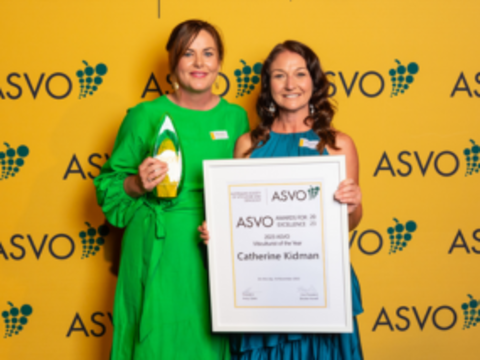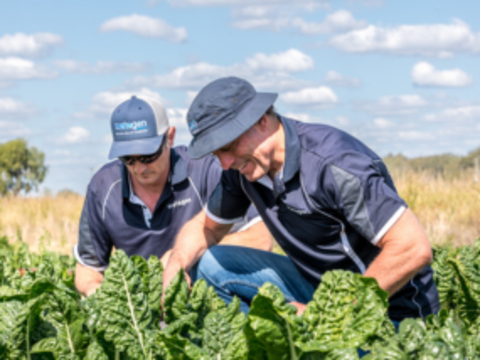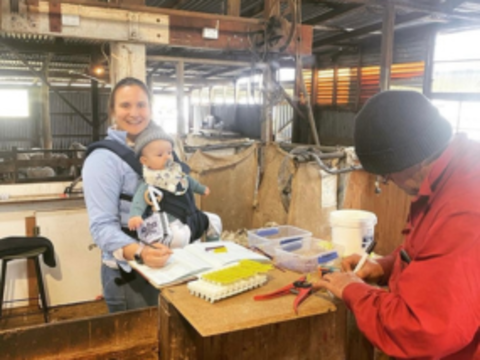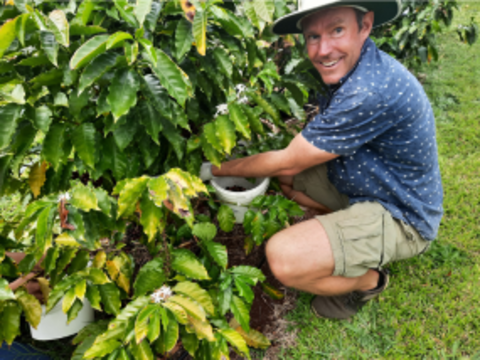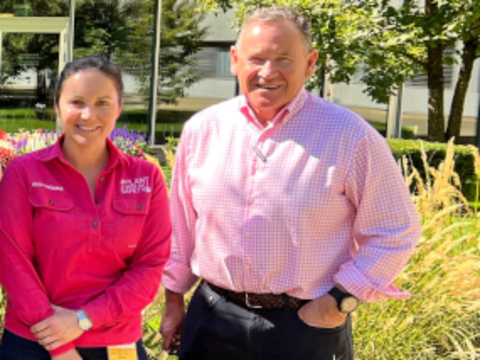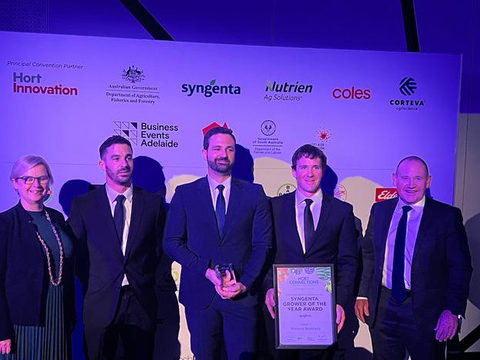Access to new technology and crop solutions key to future success of Australian vegetable growers
- Growers challenged to improve production efficiency, better meet consumer and value chain needs and create new market opportunities.
- Need to maintain strong reputation for adopting new technology early.
- Integrated innovation is key to sustainably lifting yield, quality and profit.
The future success of Australian vegetable growers depends on access to new technology and crop solutions.
That was the message from Paul Luxton, Syngenta Territory Head Australasia, when he addressed the AUSVEG Convention Agribusiness Leaders Breakfast last Friday.
“We believe there is a bright future for Australia’s vegetable industry,” said Paul Luxton, speaking alongside other industry leaders, “but it depends on improving production efficiency and risk management, meeting the evolving needs of consumers and the value chain, and creating new market opportunities. New technology and crop solutions will be essential in enabling Australian growers to capture these new value opportunities.”
With over 5,000 people at Research and Development (R&D) centres and field stations worldwide, Syngenta is the leader in grower-focused innovation. In 2012, Syngenta invested US$1.25 billion in developing quality seeds and crop protection products, as well as crop-based solutions that integrate genetic and chemical technologies.
“Australia has a strong reputation for adopting new technology early,” Luxton continued. “But a lack of funding and increased red tape and regulation will impact our ability to apply the outcomes of our R&D. Australia used to be one of the first markets for a new crop protection molecule launch, but increasing costs and regulation mean it may wait up two to three years. This needs to be addressed.”
By leveraging Syngenta’s global R&D resources, Syngenta Australia is able to continuously develop and launch tailored solutions. These include both crop protection and seeds which help growers manage volatility and complexity, while increasing yield and quality. Examples of new varieties include a new sweet snacking cherry tomato, a more flavoursome truss tomato and the 1400 series firm flesh watermelons. Australian consumers can also expect to soon see the ANGELLO snacking pepper – a new retail product created to meet customer and supply chain needs. To complement these new varieties, AMISTAR®, AMISTAR® TOP and SWITCH® are now available to cover more vegetable crops, and a strong pipeline aims to bring a new insecticide, nematicide and several new fungicides to the market over the coming years.
Bob Mullins, Syngenta Global Head of Marketing for Open Field Vegetables, who is an Australian based in the US, also addressed the AUSVEG National Convention and reinforced the importance of innovation in increasing yield, quality and profits for Australian vegetable farms.
“Growers are increasingly faced with complex challenges such as rising labour costs or shortages, restrictions on water supply and changing consumer needs,” said Mullins. “Growers need solutions that work at every stage of the value chain – from grower and trader to retailer and end consumer.”
Syngenta’s focus on adding value to produce and integrated crop management is closely aligned with the industry’s priorities. Innovation, for example, has driven the growth of new varieties that meet consumer demands while helping growers address the limited resource challenge. The Syngenta Seedless Pollenizer™, for example, supports the production of personal size seedless watermelons and fresh cut types, while using around 30 percent less resources.
“Growers in Australia and across the world must meet ever more demanding specifications, with an increasing emphasis on sustainability and food safety. Add rising input costs and profitability is squeezed,” continued Mullins. “Integrated innovation across crop enhancement, protection, seed genetics and new delivery technology will be the key to sustainably lifting yield, quality and profit.”
Concluding his panel role at the Leaders Breakfast, Luxton said “I have seen how the rapid adoption of new products and technologies reduces loss, increases yield, increases quality and improves taste and shelf life, all while delivering profitability and sustainability. The ongoing development of these technologies is critical for the future of Australian Agriculture.”
- Ends -
Syngenta is one of the world's leading companies with more than 27,000 employees in over 90 countries dedicated to our purpose: Bringing plant potential to life. Through world-class science, global reach and commitment to our customers we help to increase crop productivity, protect the environment and improve health and quality of life. For more information about us please go to www.syngenta.com.au



